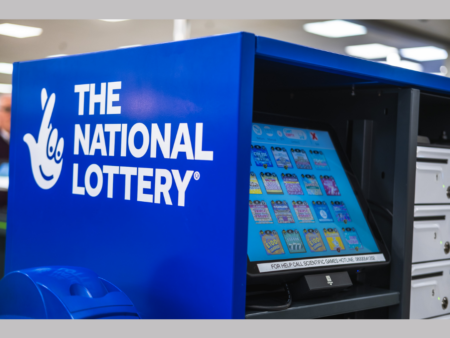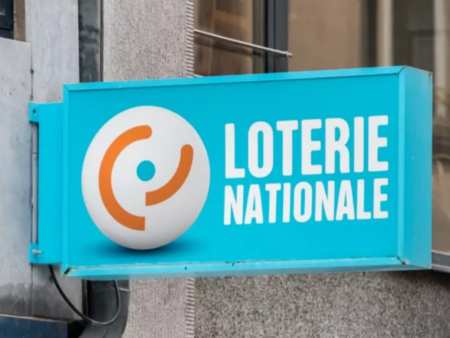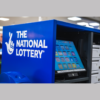TheLotter US, a leading online lottery courier service, has issued a critical warning to its users regarding a growing threat of cybercrime and phishing scams. These fraudulent activities are designed to deceive unsuspecting individuals, steal personal information, and compromise financial security. As online scams become increasingly sophisticated, lottery players must exercise heightened vigilance and adopt protective measures.

TheLotter US Issues Urgent Warning on Cybercrime and Phishing Scams Targeting Online Lottery Players
The Rise of Cybercrime in Online Lottery Services
With the rapid expansion of digital lottery platforms, cybercriminals have intensified their efforts to exploit online users. Phishing scams, fake lottery websites, and deceptive emails are some of the tactics used to target lottery players.
Yael Hertz, CEO of TheLotter Group, has emphasized that these fraudulent schemes pose a serious risk to users. He highlights that scammers are employing more advanced methods to impersonate legitimate lottery services, making it increasingly challenging for users to differentiate between authentic and fraudulent communications.
Key Warning Signs of Lottery Scams
To help consumers identify and avoid potential scams, TheLotter has outlined several red flags that indicate fraudulent activity:
- Suspicious Email Addresses – Scam emails often originate from unfamiliar or misspelled domain names, attempting to mimic legitimate lottery services.
- Low-Quality Websites – Fraudulent websites often feature poor image resolution, broken links, and malfunctioning buttons.
- Unsolicited Winning Notifications – Scammers frequently inform users of fake lottery wins, urging them to take immediate action.
- Requests for Personal or Financial Information – Legitimate lottery services will never ask users to provide sensitive data via email or text messages.
- Unusual Payment Demands – Be cautious of websites or emails that require upfront payments to claim winnings.
TheLotter’s Recommendations for Safe Online Lottery Play
To mitigate the risks associated with online lottery scams, TheLotter strongly advises users to adopt the following protective measures:
1. Always Verify Winning Notifications
Rather than relying on emails or text messages, users should log in directly to their official TheLotter account to confirm any winnings. Any unsolicited message claiming lottery wins should be treated with skepticism.
2. Never Share Personal or Financial Information
Users should never disclose personal details, banking information, or passwords in response to unsolicited messages, even if they appear to come from a trusted source.
3. Check Website Authenticity
Before engaging with an online lottery platform, verify its legitimacy by checking the domain name, contact details, and overall website design. Authentic lottery services always maintain a professional online presence.
4. Be Wary of Urgent Requests
Scammers often create a sense of urgency, pressuring users to act quickly to claim fake winnings. Always take the time to verify before responding.
5. Report Suspicious Activity
If users encounter fraudulent communications, they should report incidents immediately to the appropriate authorities, such as the Federal Trade Commission (FTC) or the FBI’s Internet Crime Complaint Center (IC3).
Expanding Security Measures as TheLotter Grows
As TheLotter continues its expansion—most recently entering the Florida market in the summer of last year—the company remains committed to enhancing security measures to protect its users from cyber threats. The growth of online lottery services presents new opportunities, but also increases the need for stringent cybersecurity protocols.
TheLotter is actively investing in technology to safeguard customer accounts, implementing multi-factor authentication (MFA), advanced fraud detection systems, and continuous monitoring to detect suspicious activity in real time.
Stay Informed and Stay Safe
With cybercriminals becoming more adept at exploiting online lottery players, staying informed and cautious is the key to safeguarding personal and financial security. TheLotter urges all users to educate themselves on emerging threats, practice safe online behaviors, and report any suspicious activity promptly.
FAQs About TheLotter US Urgent Warning on Cybercrime and Phishing Scams
1. What warning has TheLotter US issued to its users?
TheLotter US has warned its users about the growing threat of cybercrime and phishing scams targeting online lottery players. Scammers use fraudulent emails, fake websites, and phishing attempts to steal personal and financial information.
2. How do scammers target online lottery players?
Cybercriminals use various tactics, including phishing scams, fake lottery websites, deceptive emails, and unsolicited notifications about fake winnings to lure victims into sharing their personal and financial details.
3. What are the key warning signs of lottery scams?
Some major red flags include:
- Suspicious email addresses from misspelled or unfamiliar domains.
- Poor-quality websites with broken links and non-functional buttons.
- Emails or messages claiming you have won a lottery without participation.
- Requests for personal or financial information via email or text.
- Unusual payment demands to claim supposed winnings.
4. What steps can users take to protect themselves from lottery scams?
TheLotter recommends the following precautions:
- Always verify lottery winnings by logging into your official account.
- Never share personal or financial details with unsolicited messages.
- Check website authenticity before engaging with an online lottery service.
- Be wary of urgent requests pressuring immediate action.
- Report suspicious activity to authorities like the FTC or FBI’s Internet Crime Complaint Center (IC3).
5. How can users verify the authenticity of a lottery website?
Users should check the domain name, contact details, website quality, and security features like HTTPS encryption. Legitimate lottery services always maintain a professional online presence.
6. What should I do if I receive a suspicious lottery email?
Do not click on any links or download attachments. Avoid responding to the email and instead report it to the relevant authorities such as the Federal Trade Commission (FTC) or the FBI’s Internet Crime Complaint Center (IC3).
7. Does TheLotter ever ask for personal information via email or text?
No, TheLotter and other legitimate lottery services will never request sensitive personal or financial information through unsolicited emails or text messages.
8. What security measures is TheLotter implementing to protect users?
TheLotter is investing in advanced cybersecurity measures, including multi-factor authentication (MFA), fraud detection systems, and real-time monitoring to detect suspicious activity and enhance user security.
9. How has TheLotter expanded recently?
TheLotter has continued to grow, including expanding its services into Florida in the summer of last year. The expansion highlights the increasing need for heightened cybersecurity awareness and protection measures.

















